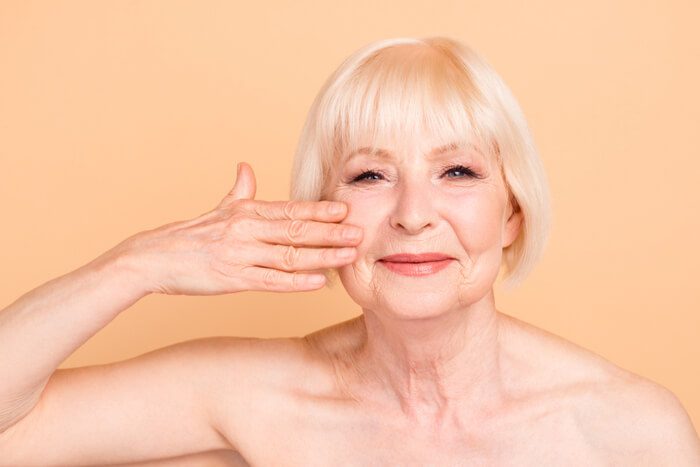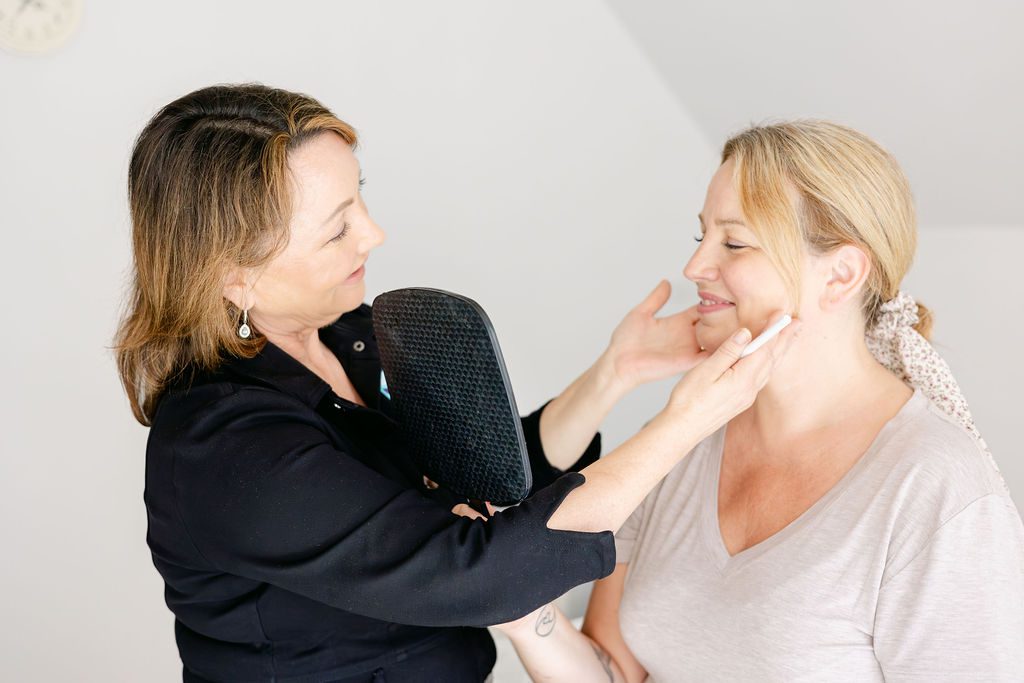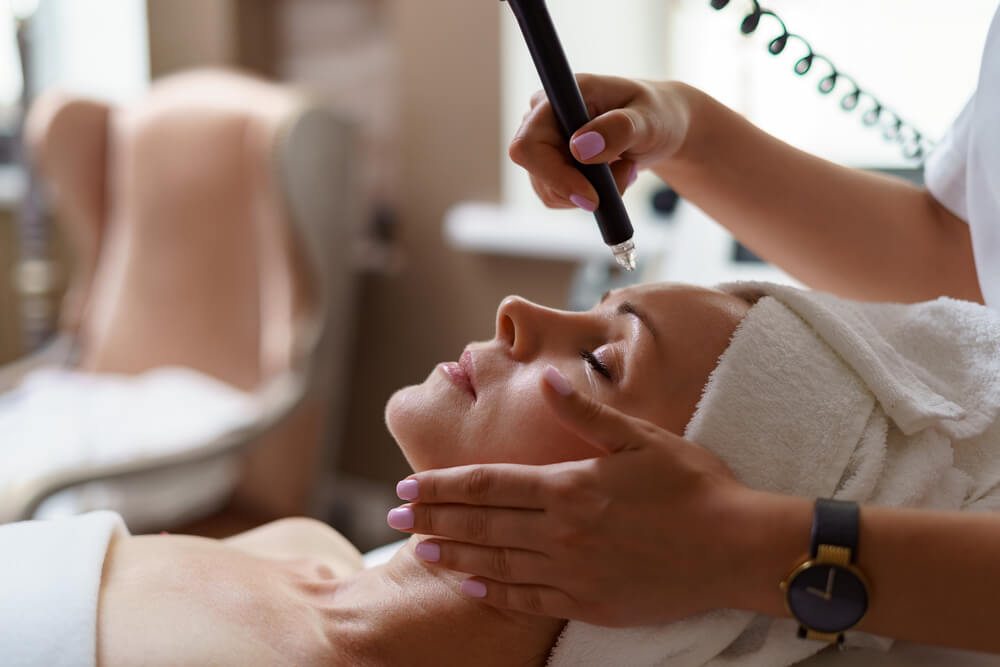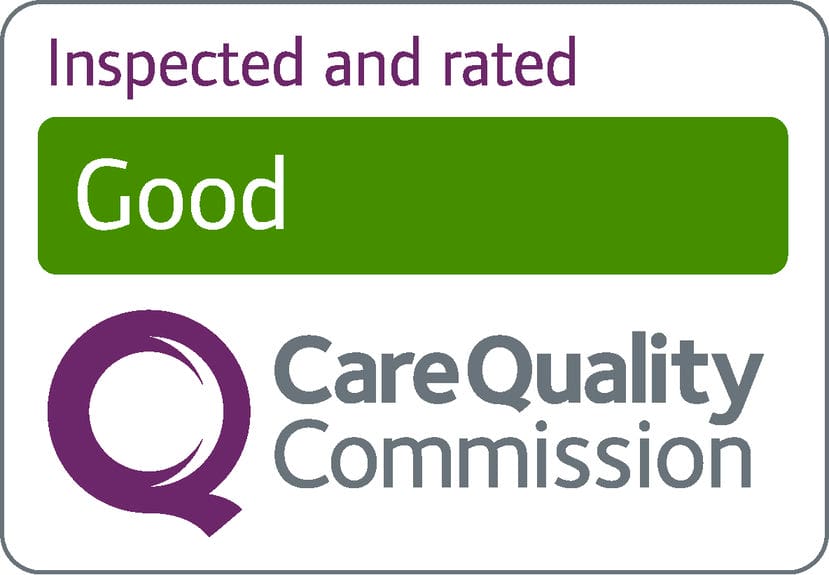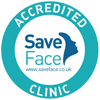Chemical peels have been around for a very long time so it’s quite often a starting point for research when you’re trying to decide how to treat your skin.
I thought I’d give you a head start and answer some of the questions we get asked all the time, both when our clients book a consultation at our skin clinic and during their skin consultation.
So, without further ado…
1. Is A Chemical Peel Painful?
The term ‘chemical’ does conjure up images of torture so it’s understandable that you’d be concerned that the treatment will hurt, however, skin peels are a way to effectively exfoliate your skin and feed it key ingredients to help a variety of skin concerns.
The way a chemical peel exfoliates is not ‘physical’ as it is with products that have tiny beads or shell particles. It is the ingredient (or ‘chemical’) that has the exfoliating action on your skin.
The strength of clinical chemical peels varies from superficial to deep and you may experience different sensations with different peels; it is quite normal to feel nothing at all, however, you may feel a tingling sensation or the feeling of warmth on your skin. You may or may not mind this sensation, however, you should not experience actual pain.
2. Are Chemical Peel Results Immediate?
It very much depends on what results you are looking for; if you have no skin problems and have a chemical peel to exfoliate and refresh your skin then yes, you may notice some results immediately; your skin may look brighter and feel softer.
If you have a chemical peel to treat a skin problem, then you will likely require a course of treatment to get the type of improvements most people are looking for.
It’s worth noting that your skin may not peel afterwards; some people may experience slight peeling or flaking. This may even vary on the same person, for example, after one treatment you may peel and then not on the other sessions.
If your skin does not peel it does not mean that it hasn’t worked. When it comes to peeling post-treatment there are several factors at play, from your skin condition to the type and strength of the chemical peel used.
3. Can A Chemical Peel Remove Scars?
Chemical peels are not generally a skin treatment we recommend for scars. Quite simply, there are scar treatments that will produce better results in less time. The scar treatment we offer includes the Fraxel laser, Derma FNS micro-needling and Clear and Brilliant.
Chemical peels are unlikely to have a dramatic impact on deep scars. However, chemical peels can help with post-inflammatory hyperpigmentation, which are dark marks on the skin after a trauma or injury and are common in those who have or had acne.
4. Can A Chemical Peel Help Acne?
Absolutely. Skin peels can be a good option for some types of acne. They can help to reduce blockages in the follicle (or ‘pore’) which contributes to the formation of acne, they can also help to reduce oil production and reduce inflammation in the skin.
Learn more about what else contributes to the formation of acne here.
Jane Lewis, Nurse and Founder of The Skin to Love Clinic in Hertfordshire says: “Chemical peels can be a great way to boost your existing skin routine if you have no real skin problems. Skin peels can also be very good for those who have problems such as sun damage, wrinkles, dullness, dry skin and acne.
It’s often thought that chemical peels are not suitable for sensitive skins, but this is not true. There is more than one type of chemical peel and there are some that are even gentle enough to treat those with rosacea, a condition where the skin can be very sensitive.
I would suggest that professional advice is the best thing when considering a chemical peel treatment as they’ll be able to match your skin and any conditions you wish to treat with the most appropriate peel. They’ll also be able to discuss any alternative treatments for you to consider.”
Please contact us if you have any questions about chemical peels or are looking for a skin clinic St. Albans, skin clinic Watford, a skin clinic Harpenden or the surrounding areas to help improve your skin.
Disclaimer: This blog is not to be used for diagnostic purposes. We are all unique which means that our results, recovery and suitability for any type of treatment will vary. Always seek the advice of a professional should you have any health or cosmetic concerns or to discuss treatments specifically for you.

